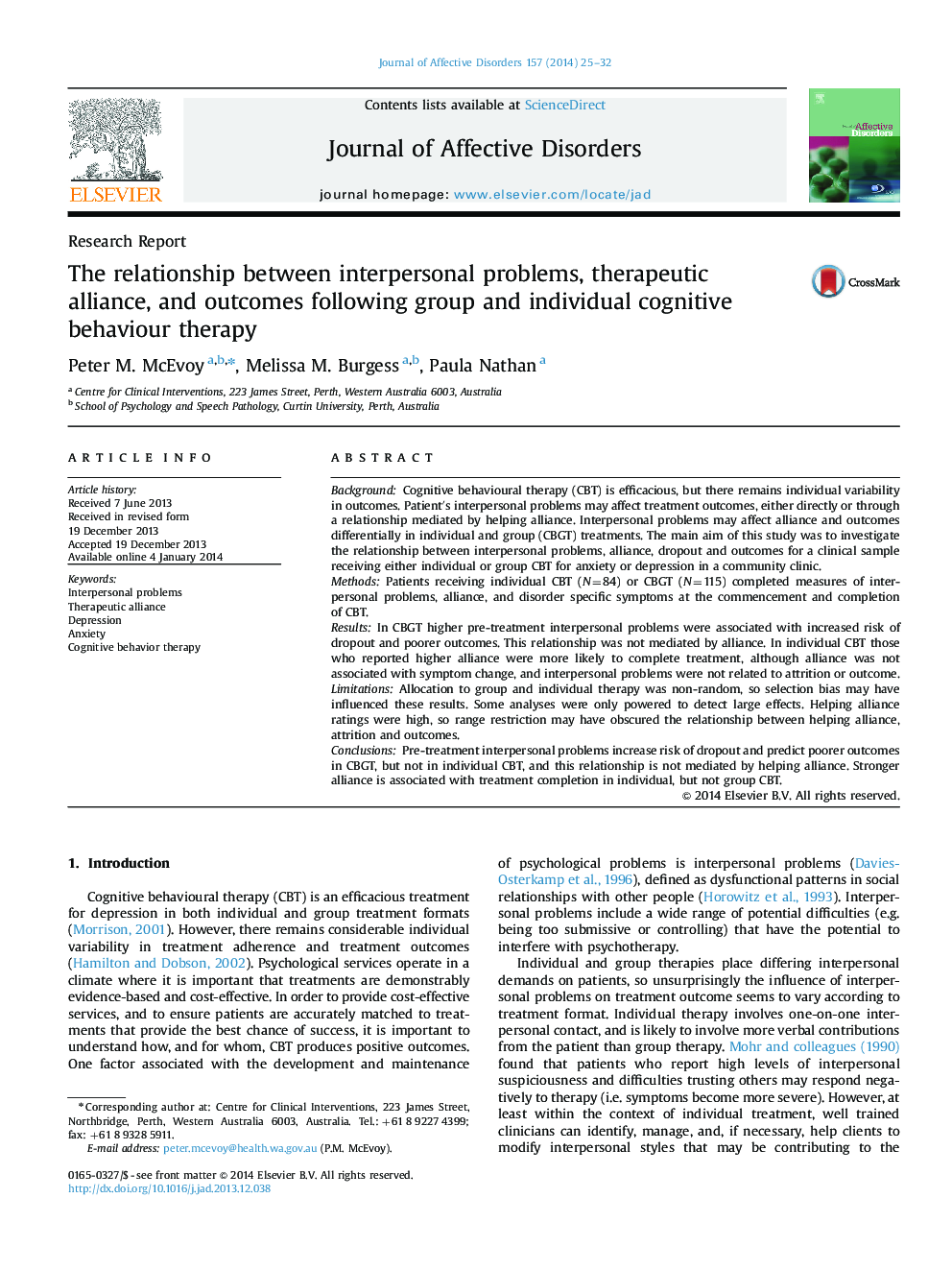| کد مقاله | کد نشریه | سال انتشار | مقاله انگلیسی | نسخه تمام متن |
|---|---|---|---|---|
| 4186048 | 1608168 | 2014 | 8 صفحه PDF | دانلود رایگان |
BackgroundCognitive behavioural therapy (CBT) is efficacious, but there remains individual variability in outcomes. Patient's interpersonal problems may affect treatment outcomes, either directly or through a relationship mediated by helping alliance. Interpersonal problems may affect alliance and outcomes differentially in individual and group (CBGT) treatments. The main aim of this study was to investigate the relationship between interpersonal problems, alliance, dropout and outcomes for a clinical sample receiving either individual or group CBT for anxiety or depression in a community clinic.MethodsPatients receiving individual CBT (N=84) or CBGT (N=115) completed measures of interpersonal problems, alliance, and disorder specific symptoms at the commencement and completion of CBT.ResultsIn CBGT higher pre-treatment interpersonal problems were associated with increased risk of dropout and poorer outcomes. This relationship was not mediated by alliance. In individual CBT those who reported higher alliance were more likely to complete treatment, although alliance was not associated with symptom change, and interpersonal problems were not related to attrition or outcome.LimitationsAllocation to group and individual therapy was non-random, so selection bias may have influenced these results. Some analyses were only powered to detect large effects. Helping alliance ratings were high, so range restriction may have obscured the relationship between helping alliance, attrition and outcomes.ConclusionsPre-treatment interpersonal problems increase risk of dropout and predict poorer outcomes in CBGT, but not in individual CBT, and this relationship is not mediated by helping alliance. Stronger alliance is associated with treatment completion in individual, but not group CBT.
Journal: Journal of Affective Disorders - Volume 157, 20 March 2014, Pages 25–32
